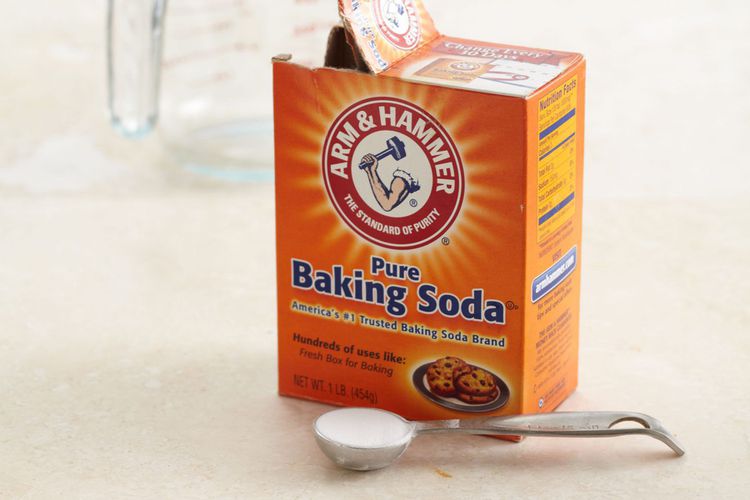Black Hairy Tongue: Symptoms, Causes & Treatment
What Are the Symptoms of Black Hairy Tongue?
Black hairy tongue is a harmless condition characterized by the growth of elongated, discolored filiform papillae (tiny projections) on the surface of the tongue, giving it a hairy or furry appearance. The main symptoms of black hairy tongue include:
- Discolored tongue: The most obvious symptom is the tongue appearing blackish-brown, greenish-brown, or yellowish-brown in color.
- Hairy or furry texture: The surface of the tongue may feel coarse, hairy, or furry due to the elongated and overgrown papillae.
- Bad breath (halitosis): Black hairy tongue can sometimes cause a metallic or musty odor due to the accumulation of bacteria, food debris, and other substances on the overgrown papillae.
- Altered taste: Some individuals with black hairy tongue may experience a temporary change in their sense of taste, such as a metallic or bitter taste.
- Gagging or nausea: In rare cases, the overgrown papillae may trigger a gagging or nausea reflex, especially when eating or drinking.
- Discomfort or soreness: The tongue may feel slightly uncomfortable or sore, but it is usually not painful.
It’s important to note that black hairy tongue is a benign condition and is typically not associated with any underlying medical condition. However, it can be a temporary side effect of certain medications, poor oral hygiene, tobacco use, or a diet high in substances that can stain the tongue (e.g., coffee, tea, or certain foods).
While black hairy tongue is usually harmless, it’s recommended to maintain good oral hygiene practices, such as brushing the tongue regularly, to help prevent or resolve the condition. If the symptoms persist or cause significant discomfort, it’s advisable to consult a dentist or healthcare professional for proper evaluation and treatment recommendations.
What Causes Black Hairy Tongue?
Black hairy tongue is caused by an overgrowth and staining of the tiny projections (papillae) on the surface of the tongue. Several factors can contribute to the development of this condition:
- Poor oral hygiene: Inadequate brushing, flossing, and cleaning of the tongue can allow bacteria, fungi, and debris to accumulate on the papillae, leading to their elongation and discoloration.
- Antibiotic use: Certain antibiotics, particularly those used for an extended period, can disrupt the balance of oral bacteria, allowing the overgrowth of fungi or other microorganisms that can stain the tongue.
- Dry mouth: Conditions that cause dry mouth (xerostomia), such as certain medications or radiation therapy, can promote the growth of bacteria and fungi on the tongue.
- Tobacco use: Smoking or chewing tobacco can stain the papillae and contribute to their overgrowth.
- Diet: Consuming foods and beverages that can stain the tongue, such as coffee, tea, red wine, or certain colored foods, can contribute to the discoloration of the elongated papillae.
- Diabetes: Poor blood sugar control in individuals with diabetes may increase the risk of developing black hairy tongue due to changes in the oral environment.
- Medications: Some medications, such as certain antibiotics, antidepressants, or bismuth-containing medications (e.g., Pepto-Bismol), can discolor or promote the growth of papillae on the tongue.
- Radiation therapy: Radiation treatment for head and neck cancers can cause changes in the oral environment and lead to the development of black hairy tongue.
- Underlying medical conditions: Certain medical conditions that affect the immune system or cause changes in the oral environment, such as HIV/AIDS or Sjögren’s syndrome, may increase the risk of developing black hairy tongue.
While black hairy tongue is usually harmless and temporary, addressing the underlying cause, such as improving oral hygiene, adjusting medications, or treating any underlying medical conditions, can help resolve the condition.
How Is Black Hairy Tongue Treated?
Black hairy tongue is typically a harmless and temporary condition, but there are several treatment methods that can help resolve it:
- Improving oral hygiene:
- Brushing the tongue gently with a soft-bristled toothbrush or tongue scraper can help remove the discolored, elongated papillae.
- Flossing and brushing the teeth regularly can help reduce the accumulation of bacteria and debris on the tongue.
- Using topical treatments:
- Baking soda solution: Gently brushing the tongue with a mixture of baking soda and water can help dissolve and remove the discolored papillae.
- Hydrogen peroxide solution: Rinsing the mouth with a diluted hydrogen peroxide solution (1 part hydrogen peroxide to 5 parts water) can help oxidize and remove the discoloration.
- Oral gels or lozenges: Over-the-counter products containing ingredients like sodium bicarbonate or enzymes (e.g., papain) may help break down and remove the elongated papillae.
- Addressing underlying causes:
- Quitting smoking or avoiding tobacco products can prevent further staining and overgrowth of papillae.
- Making dietary changes to limit the consumption of staining foods and beverages (e.g., coffee, tea, red wine).
- Treating any underlying medical conditions, such as correcting dry mouth or managing diabetes, can help resolve the contributing factors.
- Medication adjustments:
- If certain medications are suspected to be the cause, discussing alternative options with a healthcare provider may be necessary.
- Professional treatments:
- In persistent or severe cases, a healthcare professional may recommend chemical or laser treatments to remove the discolored papillae.
- Strict oral hygiene instructions will be provided to prevent recurrence.
It’s important to note that while black hairy tongue is usually not harmful, it’s advisable to consult a dentist or healthcare provider if the condition persists for an extended period or causes significant discomfort or concern.
Maintaining good oral hygiene practices, addressing any underlying causes, and following the recommended treatment methods can help resolve black hairy tongue and prevent its recurrence.




